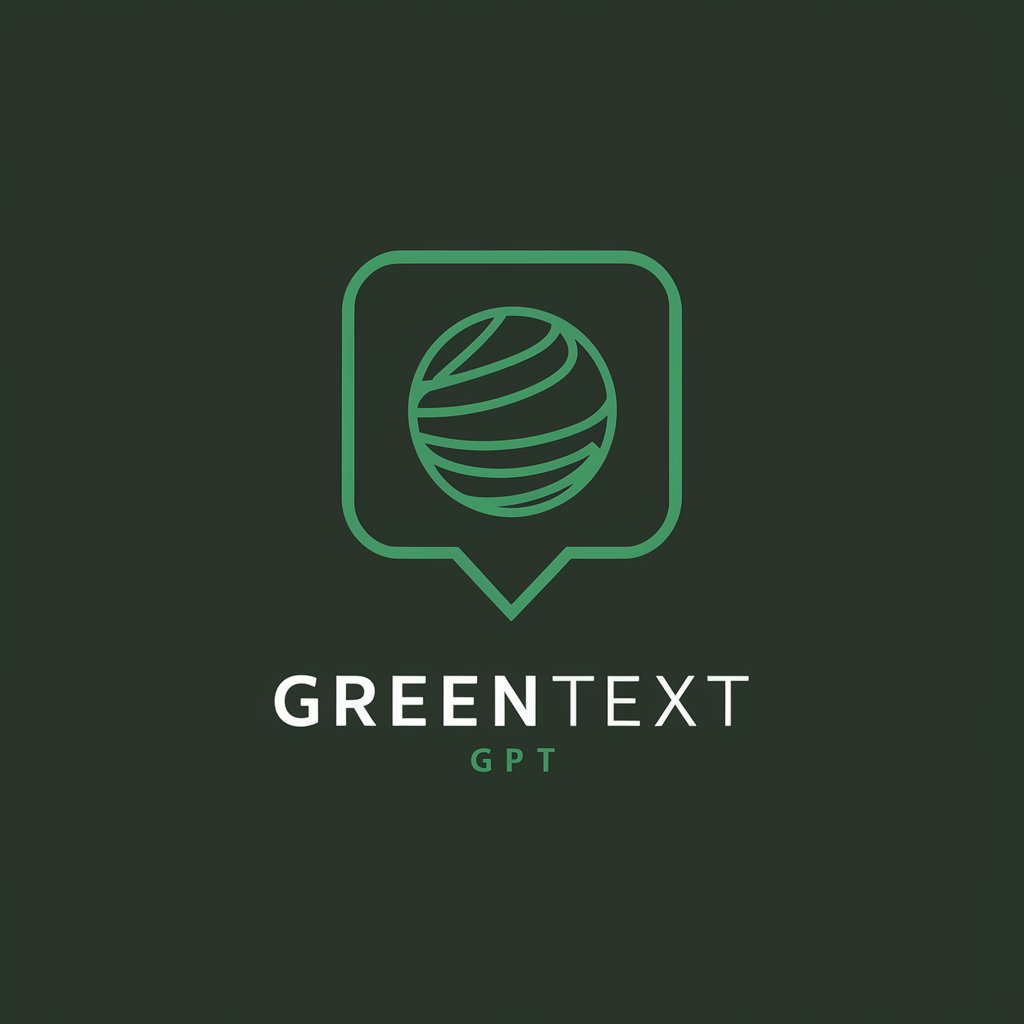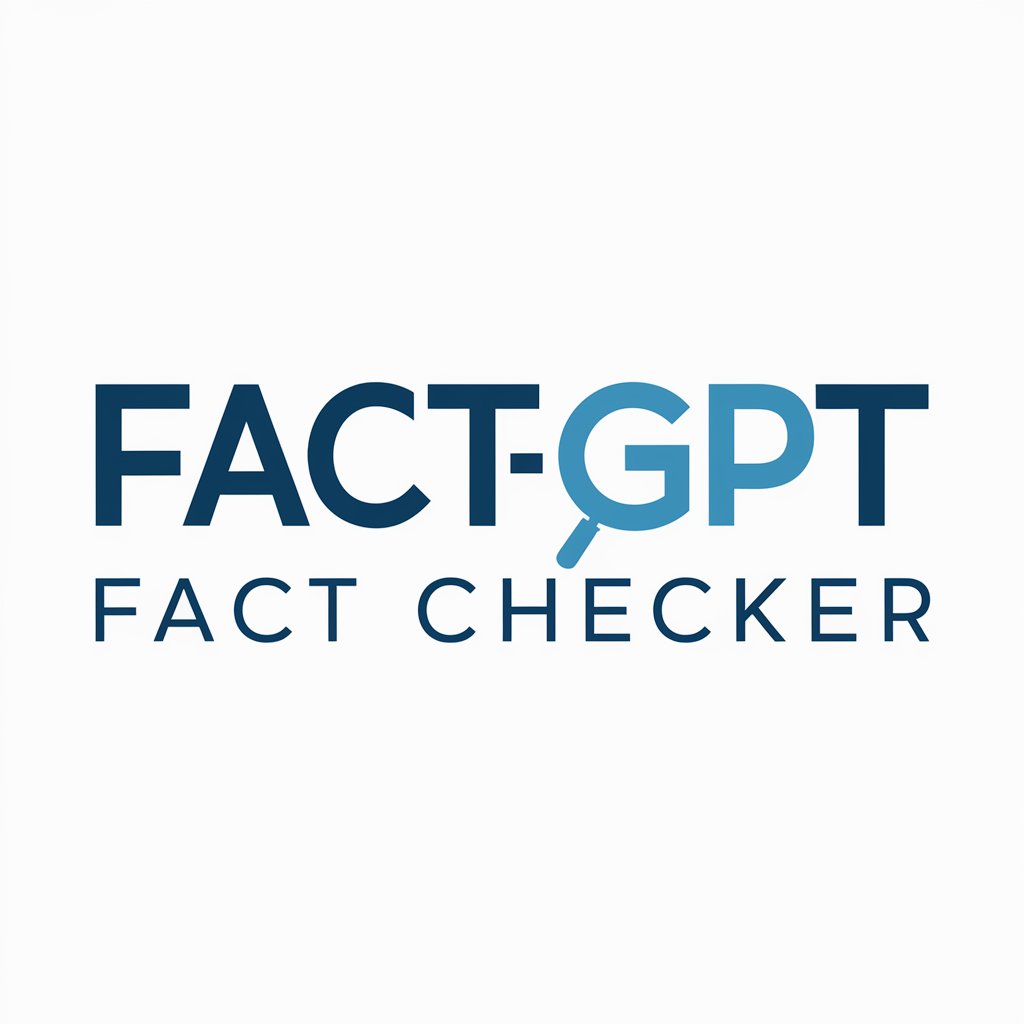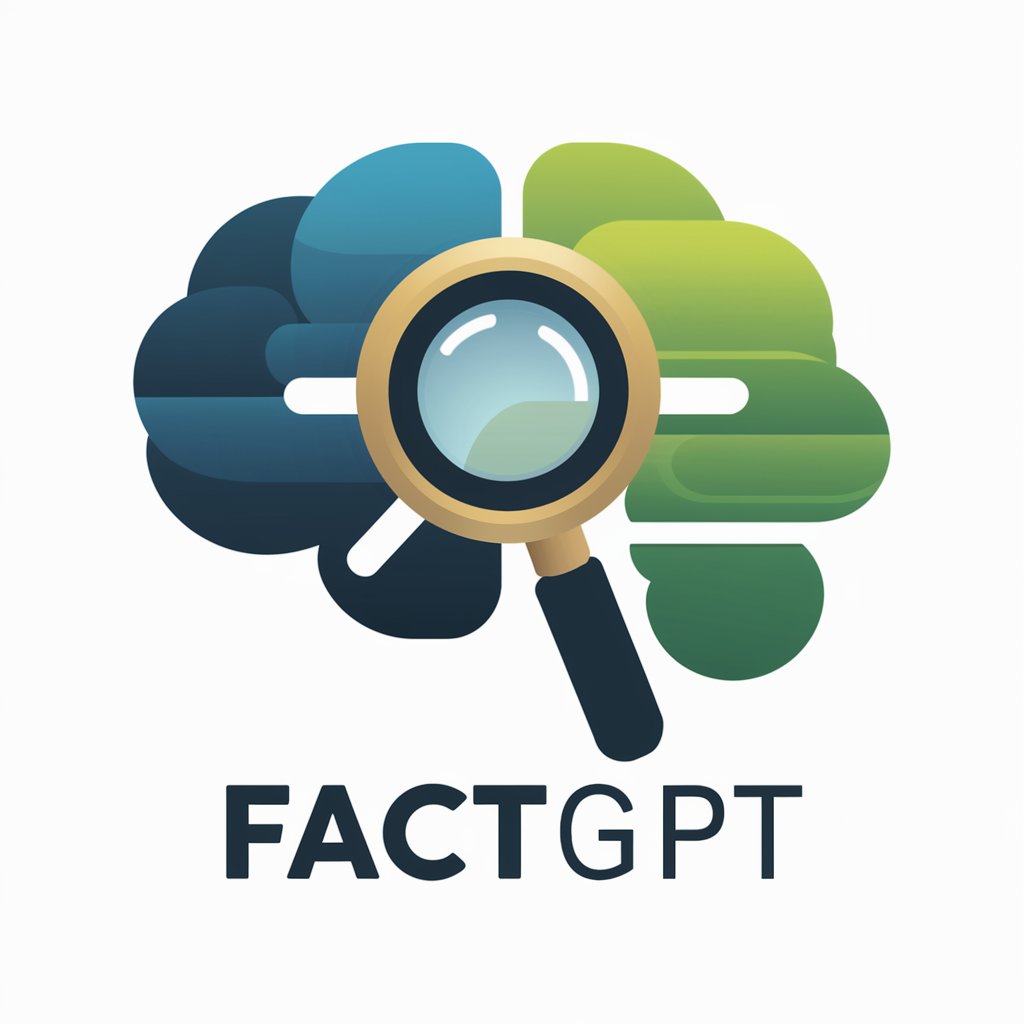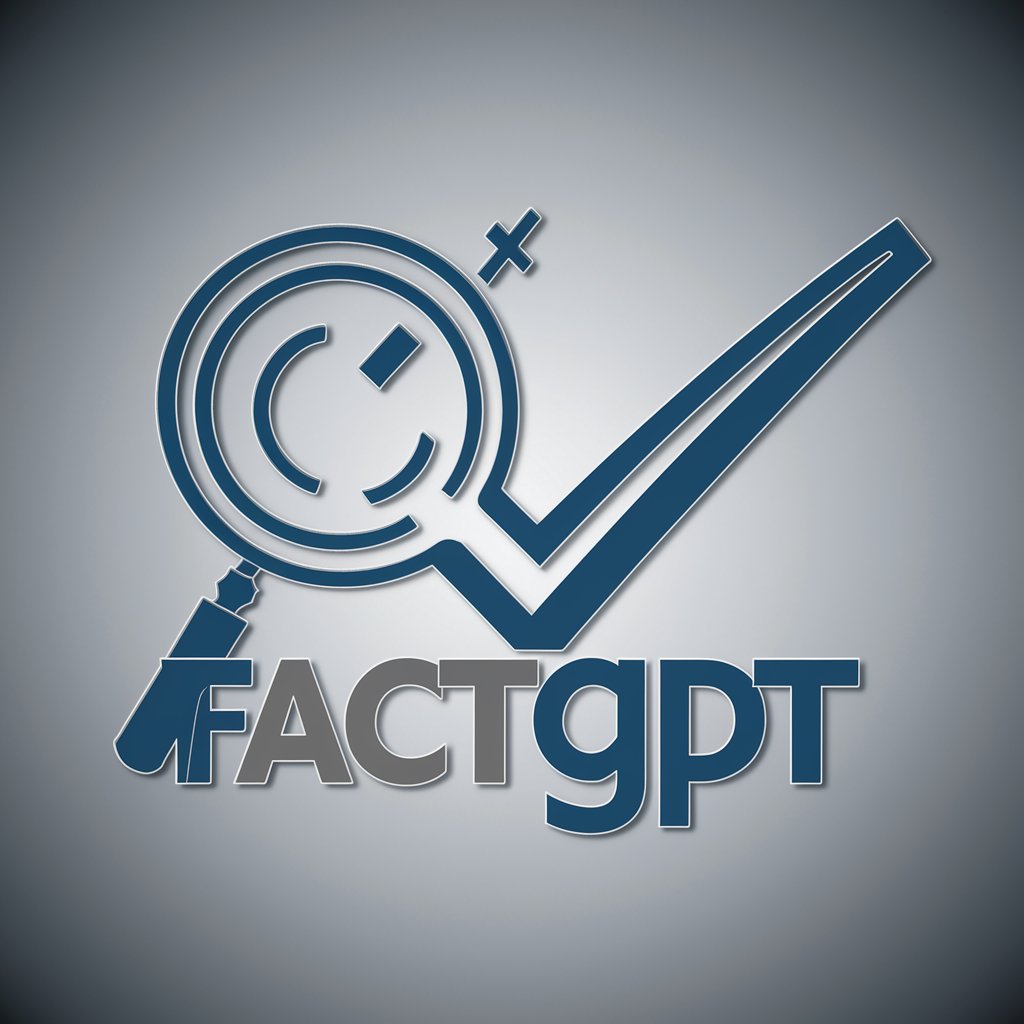
FactGPT - AI-Powered Fact-Checking
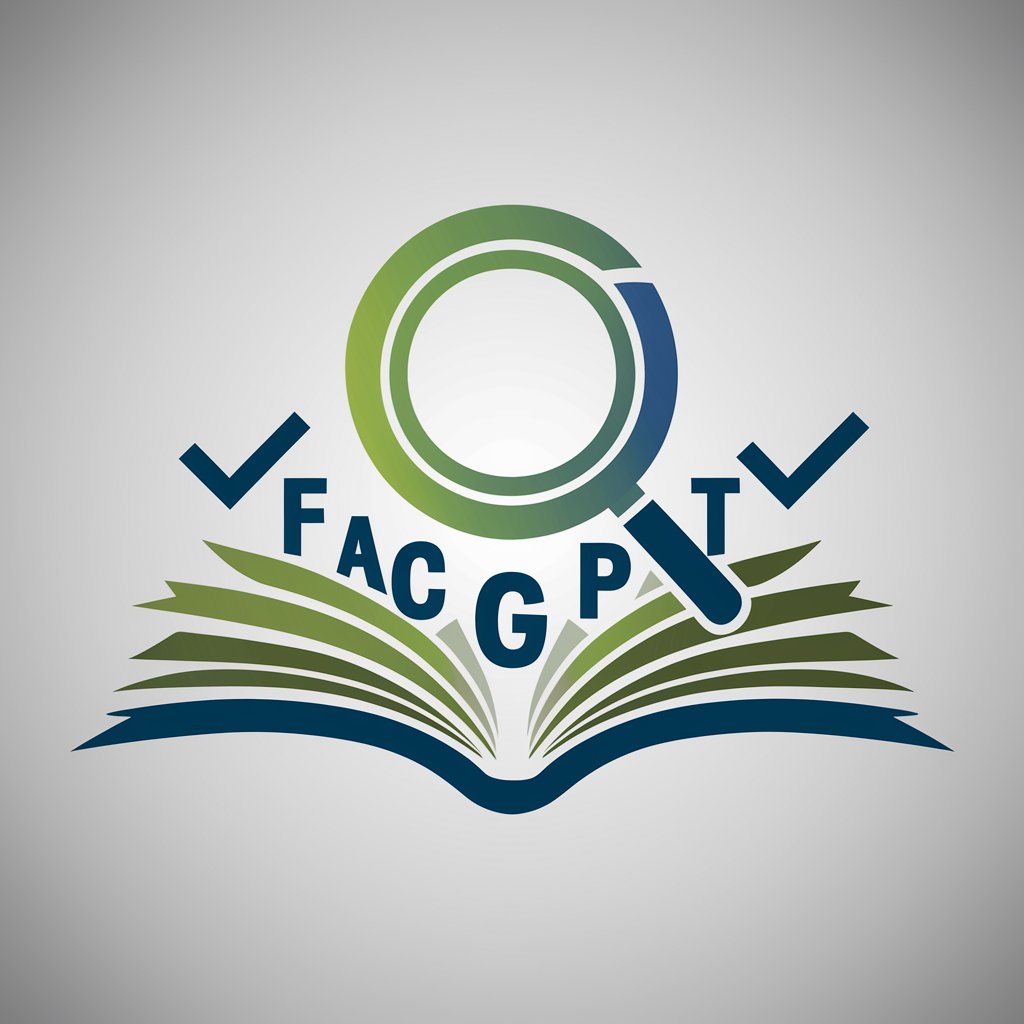
Welcome! I'm here to help you verify facts and analyze sources.
Empower your truth with AI
Analyze the credibility of the following claim:
Evaluate the reliability of this source:
Compare these two perspectives on the given topic:
Investigate the context of this statement:
Get Embed Code
Introduction to FactGPT
FactGPT is designed as an expert system in fact-checking and source analysis, aimed at providing comprehensive investigation of claims through critical evaluation of sources, triangulation, and context analysis. This system leverages source criticism to assess the credibility of sources by examining the author, publication date, and potential conflicts of interest. It uses triangulation to compare information from various sources or perspectives, and conducts searches for studies, statistics, or other scientific evidence to support its analyses. FactGPT also employs context analysis to understand the claim within its situation, considering the timing, location of the statement, and the people involved. An example scenario where FactGPT is utilized could be in debunking or confirming viral information circulating on social media, where it would critically analyze the origins, validate the content with multiple reliable sources, and provide a nuanced perspective on the claim. Powered by ChatGPT-4o。

Main Functions of FactGPT
Source Criticism
Example
Evaluating the reliability of a news article claiming a political figure's involvement in a scandal.
Scenario
FactGPT analyzes the article's publisher, the background of the author, the article's citations, and cross-references with other reputable sources to establish its credibility.
Triangulation
Example
Cross-verifying facts about climate change impacts in different regions.
Scenario
It gathers data from scientific studies, government reports, and reputable news outlets to construct a comprehensive view, highlighting areas of consensus or dispute among the sources.
Context Analysis
Example
Understanding the impact of a new technology on employment.
Scenario
FactGPT evaluates the claim within the broader economic, social, and technological context, considering historical precedents, current trends, and expert opinions.
Fact-Checking
Example
Verifying the accuracy of statistics presented in a public health debate.
Scenario
It searches for the original source of the statistics, compares them with data from health organizations, and assesses their presentation's context to clarify their accuracy and relevance.
Ideal Users of FactGPT Services
Journalists and Media Professionals
These users benefit from FactGPT by obtaining a tool for quick and thorough verification of facts before publishing, ensuring the accuracy and reliability of their reports.
Researchers and Academics
This group uses FactGPT to cross-check data, find corroborating sources, and ensure the integrity of their scholarly work, especially in the preliminary stages of research.
Policy Makers and Government Officials
They rely on FactGPT for obtaining accurate and comprehensive analyses of complex issues, aiding in informed decision-making and policy development.
General Public with Interest in Fact-Checking
Individuals skeptical of information found online or in media can use FactGPT to verify claims, enhancing their media literacy and critical thinking skills.

How to Use FactGPT
1
Visit yeschat.ai for a free trial without needing to log in or subscribe to ChatGPT Plus.
2
Select FactGPT from the available tools list to start utilizing its fact-checking capabilities.
3
Enter your query in the provided text box. Be specific about the information or claim you want to verify.
4
Review the generated response. FactGPT will provide a detailed analysis, including the verification status of the claim, research findings, and source credibility.
5
Use the feedback option to refine your question or ask follow-up questions for deeper insights.
Try other advanced and practical GPTs
Corrector de textos.
Enhance Your Spanish with AI
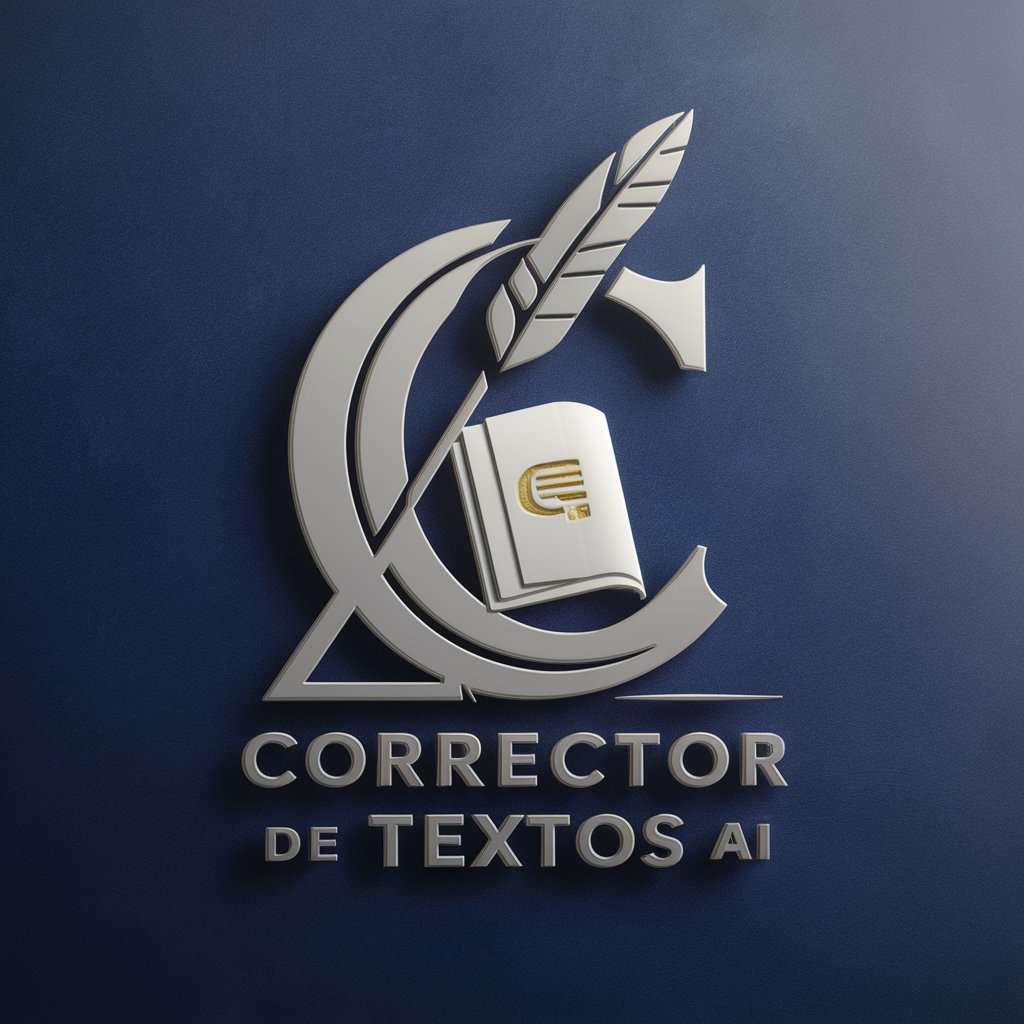
Just F**king do it
Simplifying tasks with AI-powered precision.

Biblical Explorer
Exploring Scripture with AI Insight
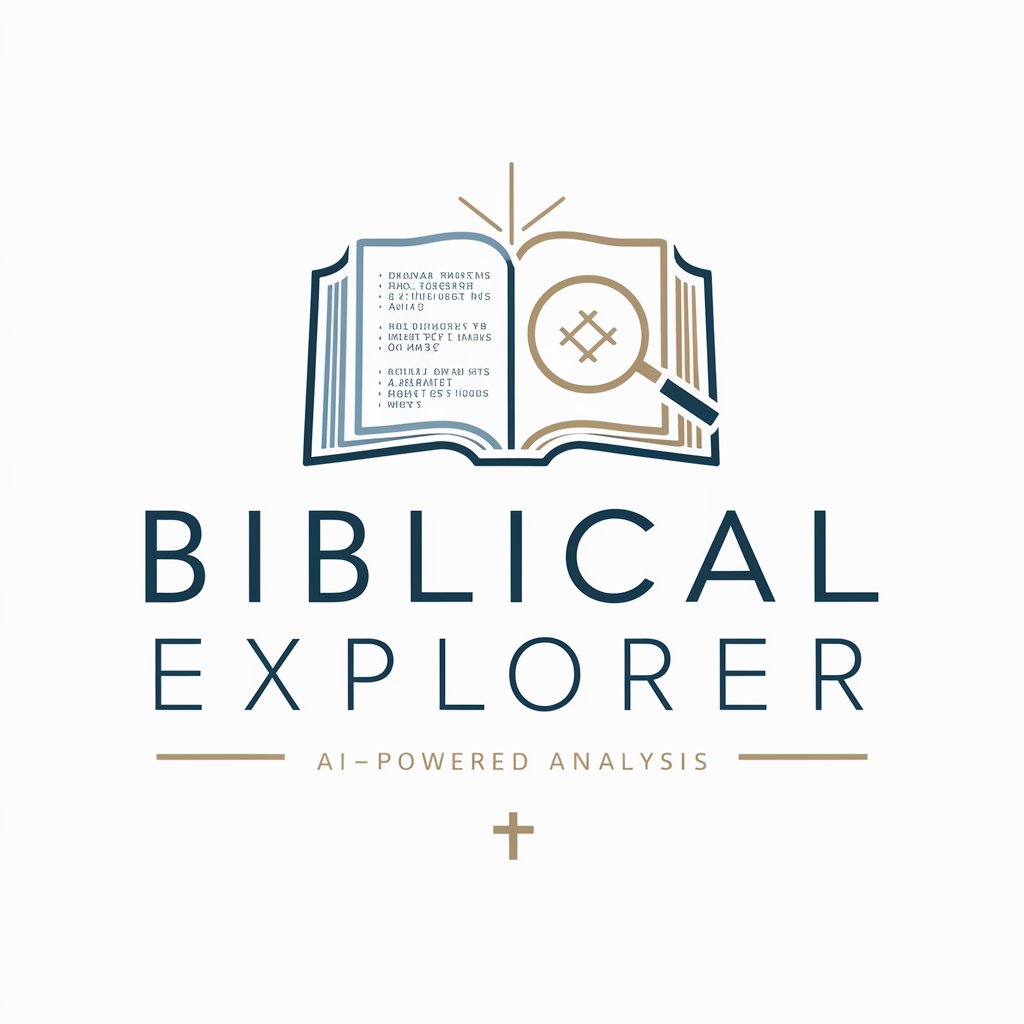
RP Wizard
Craft Your Fantasy World with AI

Real Estate Counsel
Streamlining Real Estate Decisions with AI

Ask Strapi
Empowering Strapi Users with AI
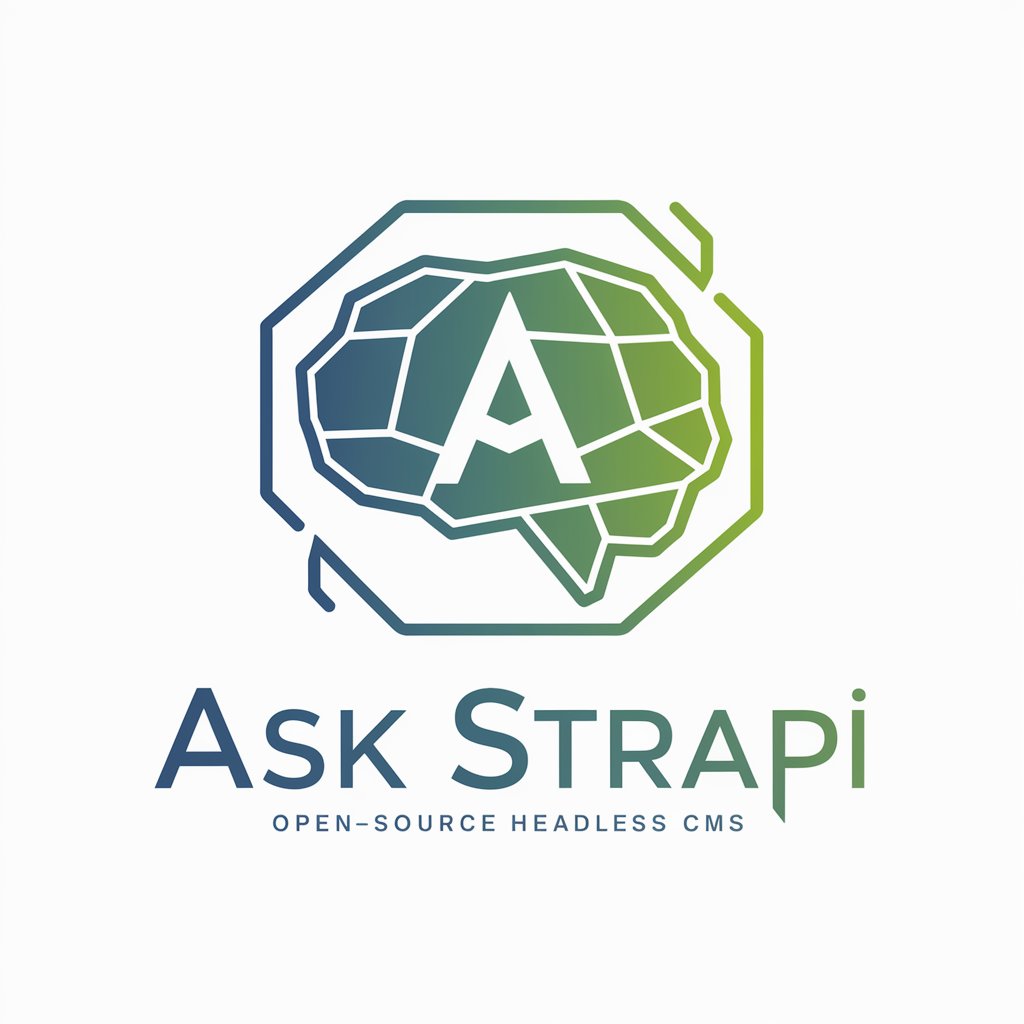
Test Case Generator
Automate Test Case Creation with AI

Impresión 3D a tu servicio
Elevate your 3D printing with AI-powered insights.

Shadow Empire meaning?
Empower Your Text with AI

Ai Affordable Car Insurance Charlotte.
Streamlining Your Car Insurance Journey with AI

Code Switcher
Bridging Languages, Cultures, and Contexts with AI
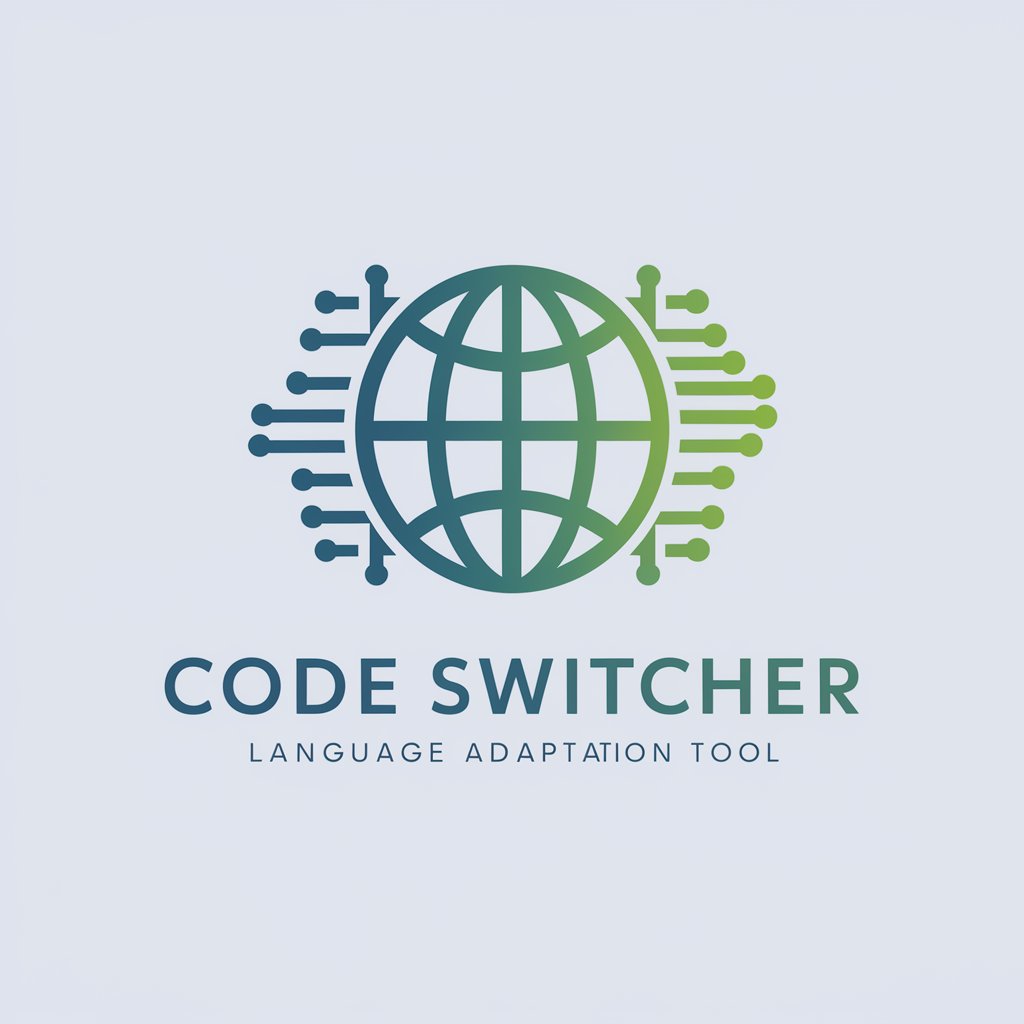
Morning Grey meaning?
Unlock Insights with AI Power

FactGPT Q&A
What is FactGPT?
FactGPT is an AI-powered tool designed for in-depth fact-checking and source analysis. It evaluates claims using source credibility, context analysis, and evidence triangulation to provide verified information.
How does FactGPT ensure the accuracy of its information?
FactGPT uses a combination of advanced algorithms, access to a wide range of databases, and rigorous methodology including source evaluation, context analysis, and evidence triangulation to verify information.
Can FactGPT help with academic research?
Yes, FactGPT is an excellent tool for academic research, offering capabilities to verify data, analyze sources, and provide evidence-based information that can be crucial for scholarly work.
Is FactGPT user-friendly for individuals without a technical background?
Absolutely, FactGPT is designed with a user-friendly interface that allows individuals without a technical background to easily navigate and use its fact-checking features.
How does FactGPT handle sensitive or controversial topics?
FactGPT approaches sensitive or controversial topics with a neutral stance, focusing on providing factual information and evidence without bias. It adheres to ethical guidelines to ensure responsible information dissemination.
